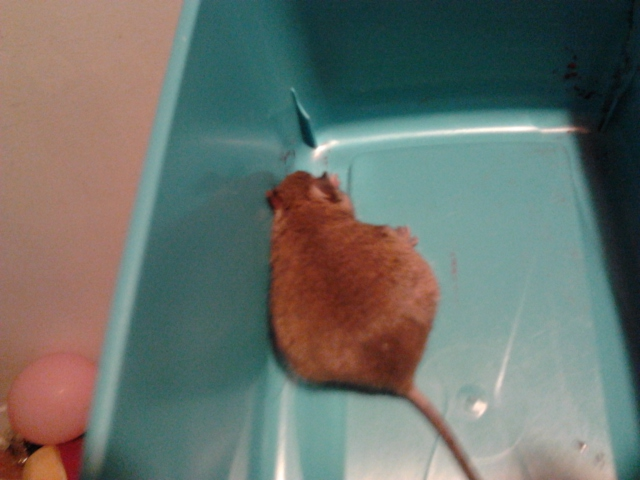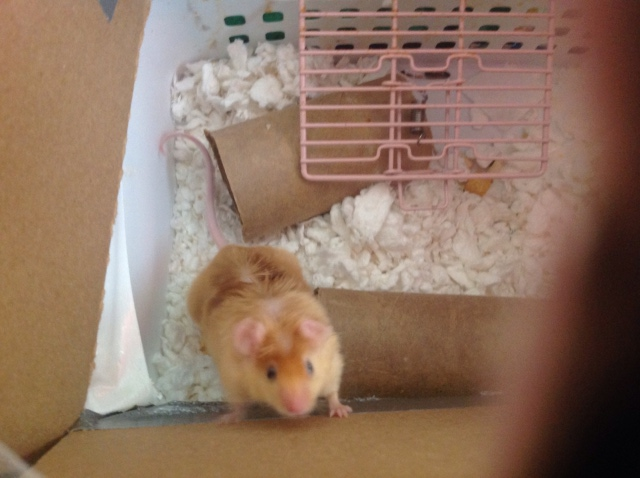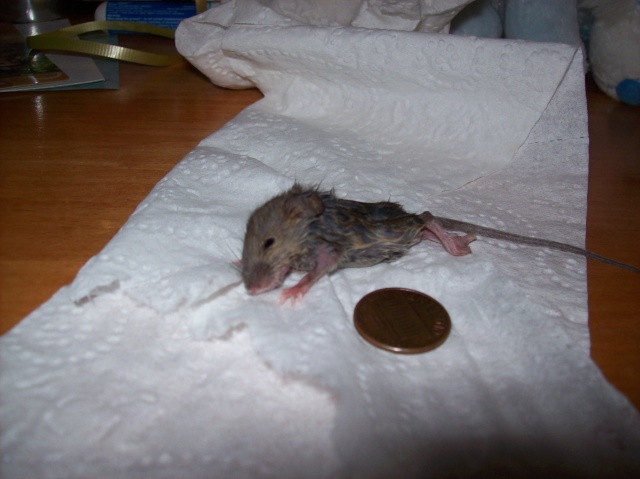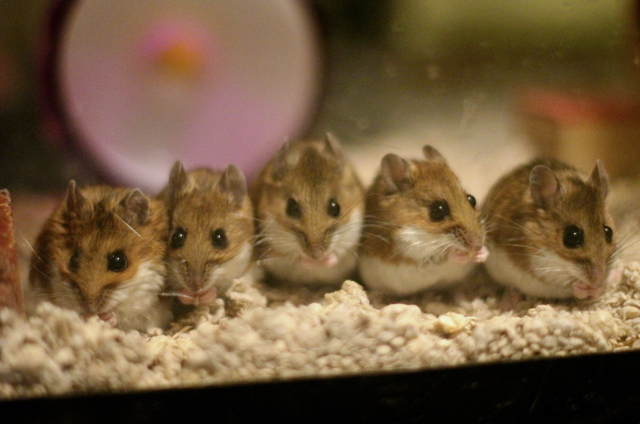QuestionSo i found a wild mouse and my first plan for it was to feed it to my snake but i began to admire it and love it so i want to know what i should do i have had it for 5 days and have read it is not safe but i have also read it is fine please help.
Thanks(in advance), Jacob
AnswerDear Jacob,
You don't mention its size or age, but since it has survived 5 days presumably without being nursed, I assume it is an adult or young adult.
The first thing is to figure out if it wants to be a pet. Does it spend a lot of time trying to escape; or does it hide the entire time? If either one of those, it does not want to be a pet and you must let it go. If it on the other hand is active or even friendly, it could make a good pet.
The next question is safety. There is one disease that field mice can carry, which can even kill humans. This is hantavirus. It is quite rare but no joke. It has been found at least once in each of about 3/4 of the States in the last few decades, but has been most concentrated in the four corners. Hantavirus is usually, perhaps always, transmitted through breathing in of dried urine and feces from infected mice. Usually it comes through cleaning out an old barn or basement, or living in a mouse-infested home. So theoretically, it it were infected, the mouse could give you the illness if you breathed in its litter as you cleaned the cage.
The way to find out if and where there have been cases near you, go to cdc.gov (center for disease control) and search for hantavirus. There is a map of the US which enumerates how many cases there have been in each state. There is also a lot of information about hantavirus. I warn you that the cdc's intent is to scare you - they pretty much tell you to wear a hazmat suit if you live within ten miles of a mouse. They have to do this so they don't get sued. I'm not saying there is no danger. In fact, there were several cases of people who camped in an infested cabin in Yosemite just this past summer. But it is not an epidemic or even common.
There is also a blood test that your vet can order for you which confirms whether or not the mouse carries the illness.
Last, if it wants to be a pet and you want to keep it, give it at least a 20 gallon tank; better, 30 gallons. This little critter is used to a territory of up to a mile. Thus it also must have a wheel. You will feed it a commercial mouse seed mix, and if you can't handle it directly, you will need a large enough cage to coax it into a box or tunnel on one side of the cage as you clean the other.
Best of luck to the little mouse, whatever you decide to do.
Squeaks n giggles,
Natasha

 Just some general questions about my mice
QuestionPumpkin!
QUESTION: Hi Natasha :)
Just go
Just some general questions about my mice
QuestionPumpkin!
QUESTION: Hi Natasha :)
Just go
 First mouse found
Question
Cinnamon?
Hi Tamarah,
&nb
First mouse found
Question
Cinnamon?
Hi Tamarah,
&nb
 Little Rummy
QuestionLittle Rummy
Little Rummy
QUESTIO
Little Rummy
QuestionLittle Rummy
Little Rummy
QUESTIO
 Cat played with baby mouse
QuestionQUESTION: Hi Natasha,
I went downstairs to do
Cat played with baby mouse
QuestionQUESTION: Hi Natasha,
I went downstairs to do
 Mice suddenly not getting along
QuestionQUESTION: Hi, Natasha:
I hope its okay to ask y
Mice suddenly not getting along
QuestionQUESTION: Hi, Natasha:
I hope its okay to ask y